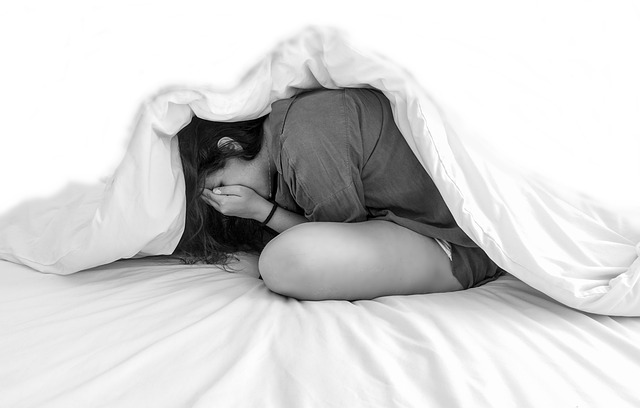In today’s digital age, social media is an essential part of daily life. From staying connected with friends and family to discovering news and entertainment, it’s hard to imagine a world without it. However, for many, social media has become a double-edged sword. While it can offer support and connection, it can also contribute to anxiety, depression, and other mental health challenges.
In this post, we’ll explore how social media affects anxiety and depression, the reasons behind these impacts, and offer practical tips to consume social media in a way that protects your mental well-being.
The Negative Impact of Social Media on Mental Health
1. Constant Comparisons
Social media platforms are often a highlight reel of people’s lives. Everyone seems to be living their best life—vacations, achievements, and perfect moments are shared constantly. This can lead to constant comparisons, making you feel like you’re not measuring up. Over time, this can lower self-esteem, increase feelings of inadequacy, and contribute to anxiety and depression.
-
Studies have shown that social comparison is linked to lower life satisfaction and increased negative feelings.
2. Fear of Missing Out (FOMO)
Seeing friends or acquaintances post about social events, achievements, or vacations can create a sense of exclusion. This “fear of missing out” (FOMO) can trigger feelings of loneliness and sadness, leading to depression and increased anxiety.
-
Research suggests that FOMO is particularly prominent in younger users, leading to higher levels of stress and dissatisfaction with one’s own life.
3. Cyberbullying and Online Harassment
Social media can also be a platform for negative behaviors such as cyberbullying and online harassment. Constant exposure to negativity, trolling, and online criticism can contribute to heightened anxiety and depression, especially for individuals who are already vulnerable.
-
A study by the Pew Research Center found that more than 40% of teens have experienced some form of online harassment, which can have a lasting impact on mental health.
4. Sleep Disruption
The blue light emitted by screens can disrupt the production of melatonin, the hormone responsible for regulating sleep. Scrolling late into the night or checking social media right before bed can interfere with your sleep cycle, leading to sleep deprivation. Lack of quality sleep can worsen symptoms of anxiety and depression.
-
Studies have shown that people who spend more time on social media, especially before bed, are more likely to experience insomnia and poor-quality sleep.
How to Use Social Media in a Way That Promotes Mental Well-being
While social media can negatively impact mental health, it’s not all bad. By adopting healthier habits and setting boundaries, you can protect your mental well-being while still enjoying the benefits of social media.
1. Set Time Limits
One of the simplest ways to reduce the negative impact of social media is by limiting the amount of time you spend on it. Set daily or weekly time limits to ensure you’re not mindlessly scrolling for hours. Many social media platforms, like Instagram and Facebook, have built-in features to track and limit screen time.
-
Tip Set aside specific times to check social media, and stick to those boundaries.
2. Follow Accounts that Lift You Up
Instead of following accounts that make you feel inadequate or stressed, curate your feed to include content that inspires you or makes you feel good. Follow accounts focused on positivity, personal growth, mental health awareness, or hobbies you enjoy.
-
Consider unfollowing or muting accounts that make you feel negative, anxious, or insecure.
3. Practice Mindful Social Media Use
Before diving into social media, take a moment to check in with yourself. Ask, “How do I feel right now?” Are you feeling vulnerable, anxious, or low? If so, it may not be the best time to check your feed. Mindfully engage with social media and avoid it when you’re emotionally drained.
-
Try practicing mindful scrolling, where you consciously decide what to engage with and avoid passive browsing.
4. Take Social Media Breaks
Taking regular breaks from social media can give your mind a much-needed rest. Even a weekend or a few hours without scrolling can have a significant impact on your mood and mental health. Consider implementing a digital detox to help reset your emotional state.
-
Tip Consider using apps like Forest or Focus to help you stay off your phone during designated breaks.
5. Engage in Real-Life Connections
Social media can sometimes create a sense of disconnection, even though it’s meant to keep us connected. Spend more time engaging in real-life relationships by calling a friend, going for a walk with family, or participating in activities that bring you joy outside of the screen.
-
In-person interactions have been shown to improve mood and reduce anxiety, so prioritize face-to-face conversations when possible.
6. Seek Professional Help if Necessary
If social media is negatively affecting your mental health, and you’re struggling with feelings of anxiety or depression, it’s important to seek professional help. A therapist or counselor can offer personalized guidance and coping strategies.
-
Tip Don’t hesitate to talk to a mental health professional if you find social media is contributing to ongoing feelings of anxiety, depression, or isolation.
While social media can offer many benefits, it also has the potential to affect mental health negatively. By understanding how social media influences anxiety and depression and implementing healthy consumption habits, you can reduce its harmful impact and use it in a way that promotes your well-being.
Remember, it’s about balance. Stay mindful of how social media makes you feel, and don’t hesitate to take breaks or set boundaries when necessary. By doing so, you can create a healthier relationship with social media and protect your mental health in the process.


